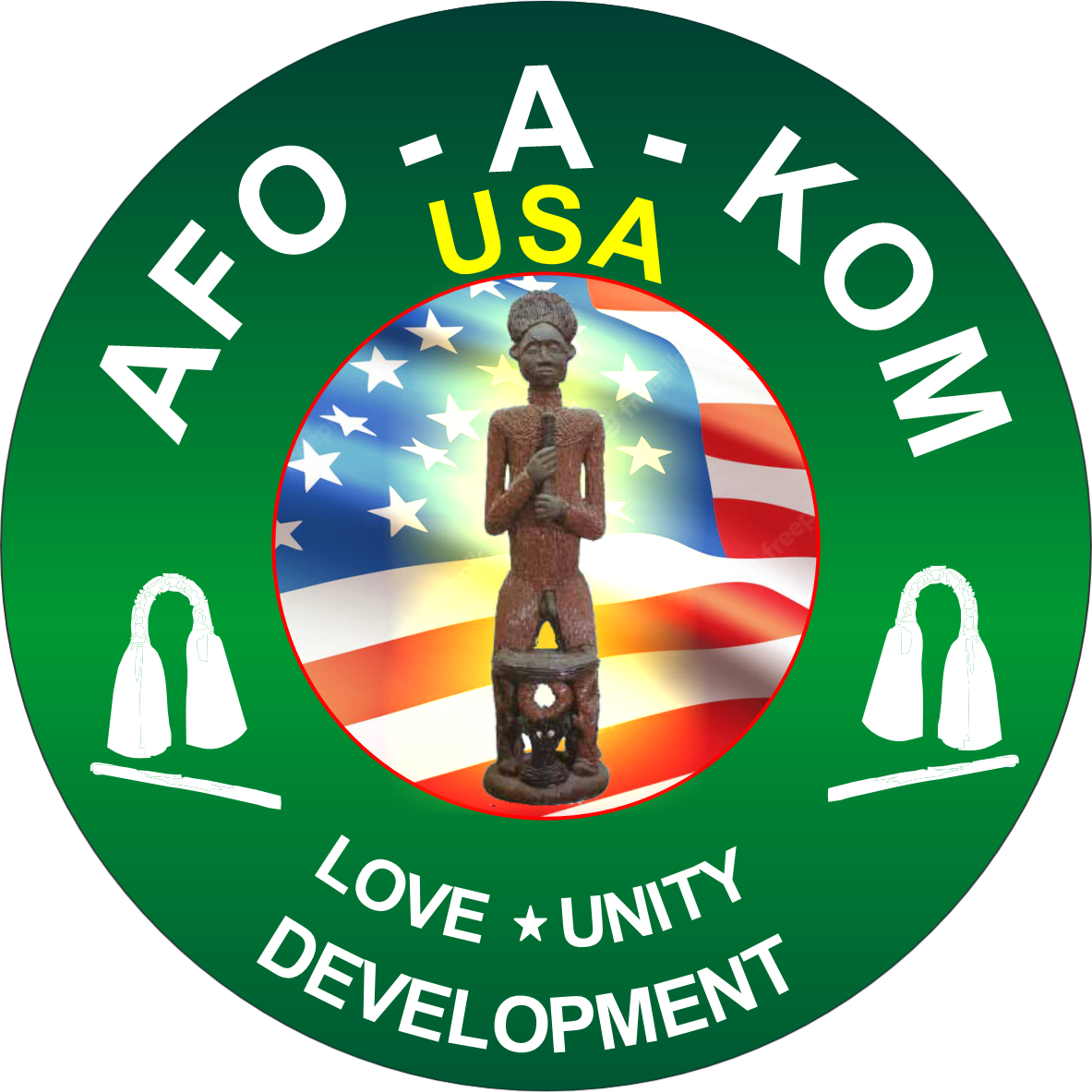Why Celebrate 50 years of the Return of Afo-a-kom?
Demonstrated by this 6ft tall, wooden and beaded beautiful piece of art – one in a family of six, admired enough
way back in the early 1970s to be valued at $60,000 in the Dartmouth art exhibition. A piece of art that graced the
floors of renowned museums and galleries in the USA. Removed from its sanctuary in 1966 and pirated to the US
by arts pirates. It was discovered by a son of Kom in an exhibition.
Embedded in the story of the discovery and eventual repatriation of Afo-a-kom in 1973, is the clear evidence of
the Kom person’s awareness and pride in his/her culture. Tribute here goes to Bobe Thadeus Nkuo, Cameroon
Cultural attaché to the Cameroon Embassy in Washington whose ability to immediately recognize a statue on
display as a lost totem from his homeland, demonstrated an awareness that is akin to most Kom people. His
immediate and joyous exclamation — “A kèynà nɨ ghɨ Afo a Kòm” (This is a thing from Kom) which led to the now
more common name of the object “Afo-a-Kom.” This was a show of pride from the origin. The fight for its return
solidifies that pride.
The fight for and the successful return of the Afo-a-kom to Kom in 1973, is a demonstration of the value a people
place in their cultural artifacts, especially those of the early days that were believed to have spiritual and symbolic
significance and above all its history. To the Kom people, the Afo-a-kom family was representative of both the
beauty of Kom culture built on the foundation of family, including food, child (procreation) and prosperity as core
principles and a symbol of unity, meant to hold the Kom heterogenous empire of ten vassal states together.
Hence, the Fon of Kom refused the offer for Afo-a-kom to be housed in Yaounde upon its return, unless that
meant relocating his entire Kom kingdom and its citizens to Yaounde. It is the symbol of Kom.
The return of Afo-a-kom in 1973 shun a spotlight on Kom as a kingdom. Elevating Kom and its people and
presenting them as a people of values – family, religious, hardworking, welcoming. It brought the beautiful Kom
culture and people to the limelight in a positive and uplifting manner – something that has benefited the Kom
person and the Kom culture ever since, in terms of national and international recognition and respect.
Many culturally significant artifacts from Africa and Cameroon in particular (including Kom) continue to be
dispersed around the world – some documented, others undocumented. This celebration reminds us of the
positive impacts of restituting these artifacts to the rightful owners. At a time when renewed efforts to right
historical injustices pertaining to African artifacts are ongoing, this commemoration is a reminder that these
efforts span decades long. It also underscores their historical, cultural, and developmental significance.
Keeping our younger generation, especially our children born in the USA, knowledgeable about their roots, linked
to their origin stories, while sharing that knowledge with the rest of the world as a way of expanding
understanding in the continuous strive for greater inclusivity and belongingness in a world of diverse cultures.
We intend to produce a 50th anniversary magazine. We call on everyone interested, to write an article to share
their interesting stories, reflections, and encounters with Afo-a-kom from when it was carved, stolen, or returned.
Articles will be selected for publication based on availability of space and on first come first serve. We hope you
can keep it short and sweet (500 words or less).
Even though we can celebrate it in any year, 50 years has always been an important milestone. It is widely
believed that Afo-a-kom arrived Kom in December 1973 after leaving Maryland in an AirFrance flight (seat 1F).
The celebratory moment 50 years ago started with USA where Afo-a-kom itself was found and the return process
was kickstarted.
With blessings from HRH the Fon of Kom and kwi’foyn, we are therefore kickstarting the celebration of the 50th
anniversary celebration of the return in Maryland USA, in line with that historical moment. Every Kom person
around the World was celebrating the fact that the lost Afo-a-kom was finally found. We encourage everyone now
to do same in their homes and communities all over the World.
We continue to count on the goodwill of friends and well-wishers to sponsor the event with donations of any
amount so that we can cover the cost. To be a sponsor, please visit the sponsorship link on the Afoakom USA
website at https://secure.qgiv.com/for/50thanniversaryofthereturnofmbangtokom to view sponsorship levels and
make a donation.

